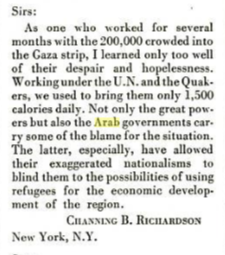P F Tinmore
Diamond Member
- Dec 6, 2009
- 79,103
- 4,386
- 1,815
http://www.whale.to/b/Pappe, The Ethnic Cleansing of Palestine.pdfWas it by treaty or by illegal military conquest?
Illegal military conquest is defined by a State actor using military action to invade, occupy or take control of territory not under its sovereignty. The only such States were Jordan and Egypt. (Others tried, but did not succeed in taking control of territory outside their own sovereignty).
Self-determination, by definition, is not military conquest.

